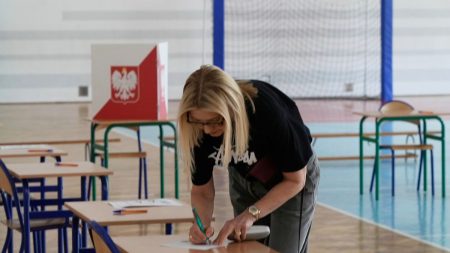The political landscape of Germany has been dramatically reshaped by the collapse of Chancellor Olaf Scholz’s ruling coalition, leading to the dissolution of parliament and the scheduling of snap elections. President Frank-Walter Steinmeier, acceding to Scholz’s request, has set February 23rd as the date for Germans to return to the polls. This decision marks a significant acceleration of the electoral timetable, thrusting the nation into an unexpected period of political uncertainty.
The dissolution of parliament follows a failed vote of no confidence against Chancellor Scholz, a rare occurrence in German post-war history. This marks only the sixth such vote since 1949 and the third instance of a government’s term ending prematurely. The collapse of the coalition, comprising the Social Democratic Party (SPD), the Greens, and the Free Democratic Party (FDP), underscores the inherent fragility of multi-party governance and the potential for internal divisions to destabilize even seemingly robust political alliances. The specific policy disagreements leading to the breakdown remain a subject of ongoing analysis, but they highlight the challenges of maintaining unity within diverse political groupings, especially during times of national and international upheaval.
The upcoming elections present a critical juncture for Germany. Voters will have the opportunity to weigh in on the performance of the previous government and the direction they wish the country to take in the coming years. The election campaign is likely to be dominated by debates over key issues such as the economy, energy policy, social welfare, and Germany’s role on the global stage. The outcome of the February elections will have profound implications for the country’s domestic agenda and its foreign policy orientation.
The decision to hold elections on February 23rd reflects a consensus between the SPD and the main opposition party, the Christian Democratic Union (CDU). This agreement suggests a desire to minimize the period of political limbo and ensure a swift return to stable governance. However, the accelerated timeline also compresses the campaign period, potentially limiting the opportunity for robust public debate and thorough examination of the competing platforms. The shortened campaign period may also favour established parties with existing organizational structures and resources, potentially disadvantaging newer or smaller parties seeking to gain traction.
The dissolution of parliament and the upcoming elections create a fluid and dynamic political environment. The various political parties will be vying to secure public support and position themselves for potential coalition-building in the aftermath of the elections. The pre-election period will be marked by intense campaigning, public rallies, media appearances, and policy pronouncements as parties seek to articulate their visions for Germany’s future. The electorate will be faced with a complex array of choices, with each party presenting its own perspective on how to address the challenges facing the nation.
The February elections hold significant consequences not only for Germany but also for the broader European and international landscape. As Europe’s largest economy and a key player in international affairs, Germany’s political stability and policy direction have far-reaching implications. The outcome of the elections will influence Germany’s approach to critical issues such as European integration, transatlantic relations, climate change, and international security. The world will be watching closely as Germany navigates this period of political transition and charts its course for the future. The results of the February elections will resonate far beyond Germany’s borders, shaping the political dynamics of Europe and the wider international community. The elections represent a crucial moment for German democracy, and the choices made by the electorate will have a lasting impact on the country’s trajectory.










